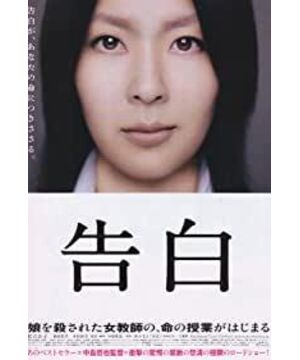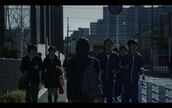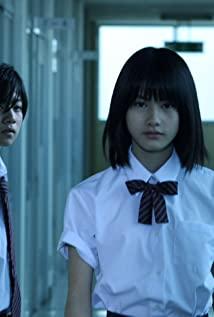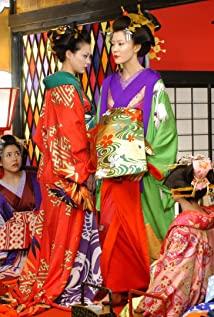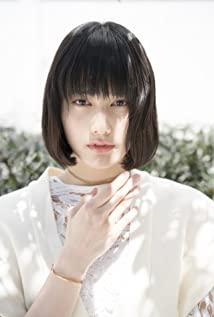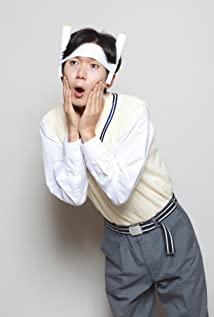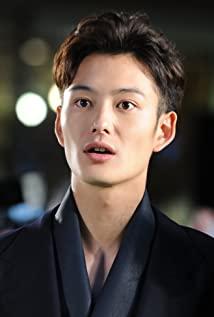So, don't ask why those two students? Why do people in "Blind Flu" go blind and then see again. The drama time of "Confession" is sliding. It is not the various opinions of "Rashomon" but they all point to a single event. "Confession" describes the brewing and aftershocks of related characters involved in a disaster before and after an accidental event. It describes how the people involved respond to the evil imposed on them after an "evil" occurs, and in this novel and movie, they choose "revenge".
Let's talk about the drama time first. The movie is not "The Very Suspects". The drama time should be from April to July. After Mr. Moriguchi made an amazing confession in the class, it ended at the end of the spring when all flowers were supposed to be full of business. Mother's Memories.
Then there is the role relationship. Isn't the character in the movie to find out the murderer who killed Mr. Moriguchi's daughter Aimi? Not at all. These characters are originally related (teachers, students and parents), not so much that they participated in or carried out the murder in time and space, it is better to say that because of the murder, the audience recognizes these people, such as Mr. Moriguchi, Mizuki Kitahara , Watanabe Shuya, Naoki's mother, Terada teacher, Sakura Palace justice.
We saw their words in "Confession" and got to know these characters, just like Pirandello's famous "Six Characters in Search of Authors". Just as in the play, they both participated in the performance of "Deer Kingdom", in "Confession", what they really have in common is the "Unconditional Love" they hold in their hearts for another person. When this love is deprived, they lose control, or go on a path of no return and sacrifice for it.
Therefore, we can boldly say: "Confession" is six love stories, strung together into a revenge story, the movie is even more so. In addition, just as "Six Men Who Seek the Author" is a precursor to the absurd theater, "Confession" is definitely not realistic, and does not seek to reflect Japanese social or educational problems. It is a ridiculous revenge drama, but the crime scene is a campus crime. , strung together many common campus problems, but the method is formalistic, and in terms of the main axis of love and revenge, it is not purely exclusive to Japan. (The more interesting one is Shuya Watanabe, narrated by Yonghou)
It can be said that the movie "Confession" is an amazing adaptation and a story of super perfect revenge! Under the brilliant shot of director Tetsuya Nakajima exceeding all Stimai commercials combined, all the characters, like Matsuko, have a nasty reason: that is unconditional love; when this love is deprived, let People realize that hate, like love, can be unconditionally extreme, and they believe in the hope that they can find the light of hope after passing through the flames, and the irreversible tragedies
in the film are in Tetsuya Nakajima's eyes. Matsuko in "The Life of the Disgusting Matsuko", everyone from Moriguchi to Aimi, Mizuki to Shuya, Shuya to mother, mother to Naoki, and Terada to Sakuranomiya, all of them are out of a kind of simple and strong love. "Confession" is not the first to joke about HIV. Mexican director Alfonso Cuaron described a playboy who was pranked by a nurse's ex-girlfriend as HIV positive in his debut film Sólo con tu pareja in 1991, and used it to describe the characters in "Confession". Very suitable.
Of course, the image of the Japanese film "Confession" is not at all like the wild and enthusiastic Latin America. It is extremely cold and dark, like a horror story on a rainy night. Of course, the most powerful film adaptation of "Confession" includes Tetsuya Nakajima's superb and refined images like a kaleidoscope. It is faithful to the original book and uses "Rashomon"-style character paragraphs, dividing the film into multiple sections, like kaleidoscopes or pieces of a puzzle, allowing the audience to To organize the time by yourself, this method echoes very well.
The character of "Confession" is obviously unreasonable or exaggerated in drama, as mentioned above, especially the talented student Shuya Watanabe as an example; this character is extremely paranoid, and it is not difficult for audiences familiar with Japanese movies and Hari to understand, but Western audiences do not know how ; This young but unexpectedly destructive character appears in a large number of Japanese near-future animation works, such as "Evangelion".
The character in the author's pen quoted Dostoevsky's "Crime and Punishment": "The selected extraordinary people have the power to transcend the current social norms for the growth of the new world." I don't know the original author of "Confession". How deep is the culture, or is she only concerned with the "unconditional love" that Axiu has for her mother? However, despite how unreasonable this genius little inventor is, it is the most intensely burning soul in the whole book, and it corresponds to the theme of mother and child with Mr. Moriguchi.
In addition to being good at image processing, director Tetsuya Nakajima also grasps the essence of the original work in the concept of adaptation. In addition to the two condensed roles of Mizuki and Naoki, there are three more prominent techniques. One is to follow the linear time limit of the film. From Mr. Moriguchi's confession, A (Xiuya) and B (Naoki) in the novel appeared in the opening scene under the camera, revealing the protagonist of the narrative (the novel can be reread and skipped non-linearly, which is relatively loose).
The second highlight is the special effects of the big explosion at the end of the film. In this segment that was criticized for being too long, I think Tetsuya Nakajima used it very appropriately. He put the setting of the reverse clock to highlight the irreversibility of the damage. , as well as the whole film such as the use of broken puzzles to reorganize the original film structure, the sacrifices and injuries of these characters all come from this unconditional love. As for the effects, it's pretty amazing.
The third is the last eerie dialogue "just kidding" at the end of the shady scene.
Mr. Moriguchi of the original novel is both a "cleric" and a "preacher". If you look at "Confession" as the Bible "Job", you can also break the topic. In the eyes of God, sin and motive are not important, unless it is Innate evil (often called Satan), what really matters is faith and repentance. The most powerful thing in the original book is that Shuzai's love for his mother hurts one mother; but on the contrary, it can't escape the palm of another mother after all. "Confession" is just like its name, love, hate, anger, anger, joy, sorrow and joy are all self-inflicted. The audience is in a more perfect revenge plan, escaping the hysterical student, seemingly conquering evil, and conquering evil by the lost love of another mother.
In a word, "Confession" is by no means an attempt to reflect or discuss Japanese teacher-student education or social issues. All its characters are paranoid and even a little abnormal. They love their classmates of the opposite sex and the same sex, love their mothers and love their husbands with AIDS. In fact, it is a very human Torch combination, I believe that all the viewers who have seen it find it delicious and enjoyable.
All in all, "Confession" is a great movie, but don't look at it with pure reasoning or the lens of Japanese society. Try to think bigger, like unconditional love between people. This is actually the strongest, most hysterical, most atheistic, yet most flesh-and-blood emotion, or lust. A must see movie this year, if you only watch one Japanese movie a year, this year is it.
View more about Confessions reviews


